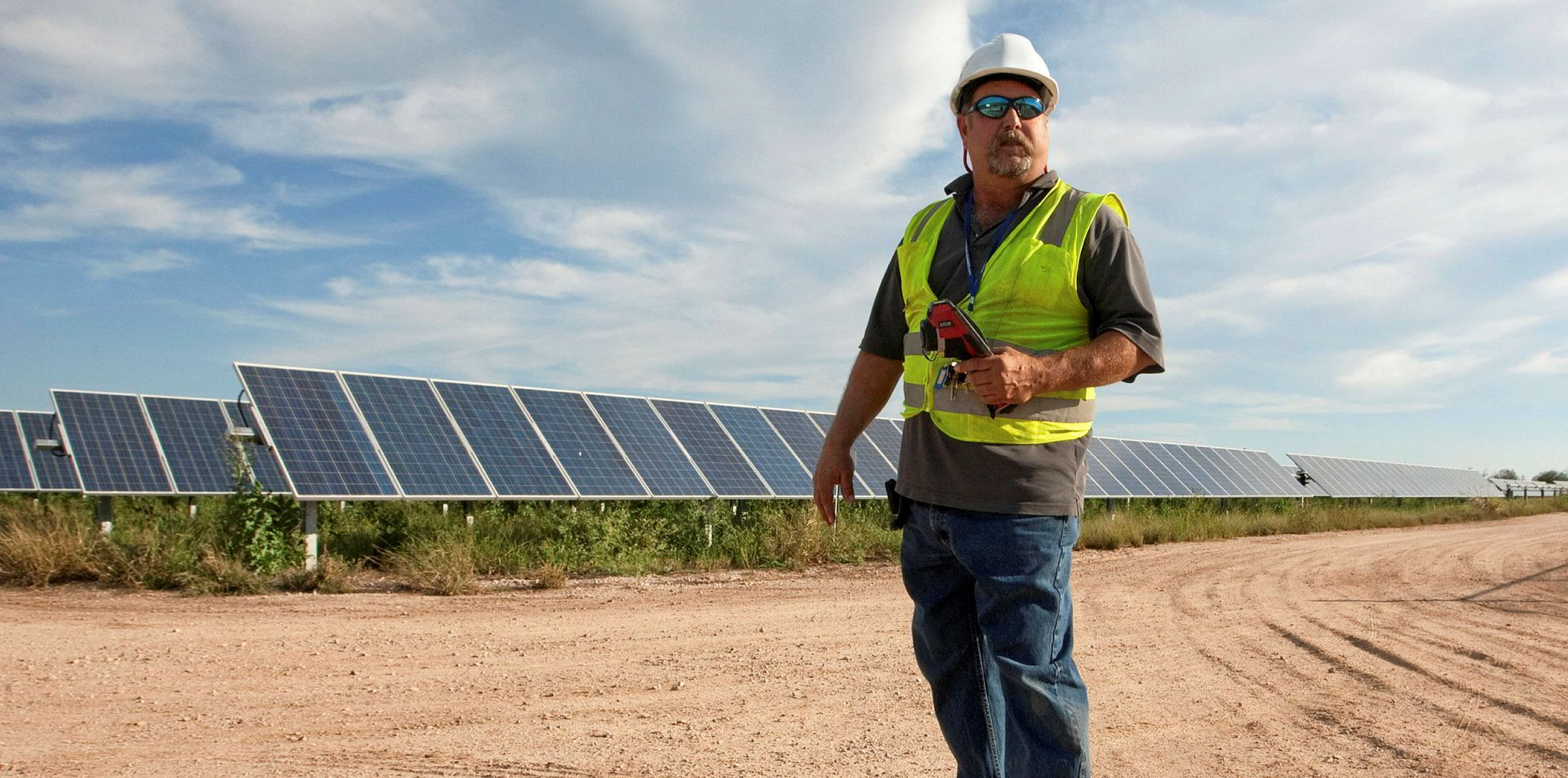Tens of thousands of US oil & gas workers have been laid off since March, when the coronavirus pandemic began reducing global oil demand — and most of those jobs are unlikely to return, according to a Deloitte Consulting report.
Yet the downturn has given new impetus for fossil-fuel companies and workers to reposition, with the energy transition presenting a tremendous opportunity, the consultancy says.
“Covid-19 has abruptly fast-forwarded the spectre of peak oil demand, degraded the investment climate and investors’ appetite for fossil fuels, and reminded organisations to take the energy transition seriously,” the Deloitte report stated.
Francesco La Camera, director-general of the International Renewable Energy Agency, recently called upon policymakers to “prioritise reskilling for fossil fuel sector workers who have lost or are at risk of losing their livelihoods”.
“Many have considerable skills and expertise to contribute to a reoriented, clean energy industry,” he pointed out.
Energy services contractors and employment businesses are already seeing increasing numbers of former fossil-fuel employees moving into the renewables sector.
“We’ve been able to consistently transfer oil and gas experience into renewables,” Beth Bowen, Americas president for global employment organisation Brunel, told Recharge’s sister oil & gas publication Upstream.
Project managers, engineers and construction specialists are specific examples of transferable skill sets, she noted, adding that the renewable energy industry will need outside experience to help in meeting its goals.
Houston-based energy technology company Baker Hughes, in addition to recruiting outside talent, looks internally to identify those who can help move the company’s energy transition plans forward.
Many of its employees have capabilities and expertise that easily apply to alternative and renewable energy markets, the company told Upstream, noting that its subsurface expertise in oil & gas development is applicable to geothermal energy development and below-ground energy storage.
And Matt Kirk, senior vice president, global engineering and consultancy at Wood, told Upstream that he sees the skills transfer as a natural extension of the industry's technical capability.
In 2014, about 90% of Wood’s business came from upstream oil and gas, he noted. Today the figure is about 35%, with a large and growing proportion of its work and future orders comprising renewable and low-carbon energy projects.
"For example, on the operations side, we have many tradespeople that provided support to onshore shale projects in the US," he said. "They crossed over and now support the solar projects as the work there has definitely picked up.”
Many technical skills and the engineering used in the subsea oil & gas space are relevant in support of offshore wind, he added.
“We understand how to design and install things for operations in underwater and harsh marine environments for significant periods of time,” he said.
“All of the challenges we will face on the renewables side will require the same engineering know-how that we've deployed in the upstream oil and gas space over the past 40 years.”
A recent survey found that four out of five UK offshore oil & gas workers would consider leaving a fossil fuels industry they believe is "drawing to a close", with renewables such as offshore wind a favoured option for more than half.





